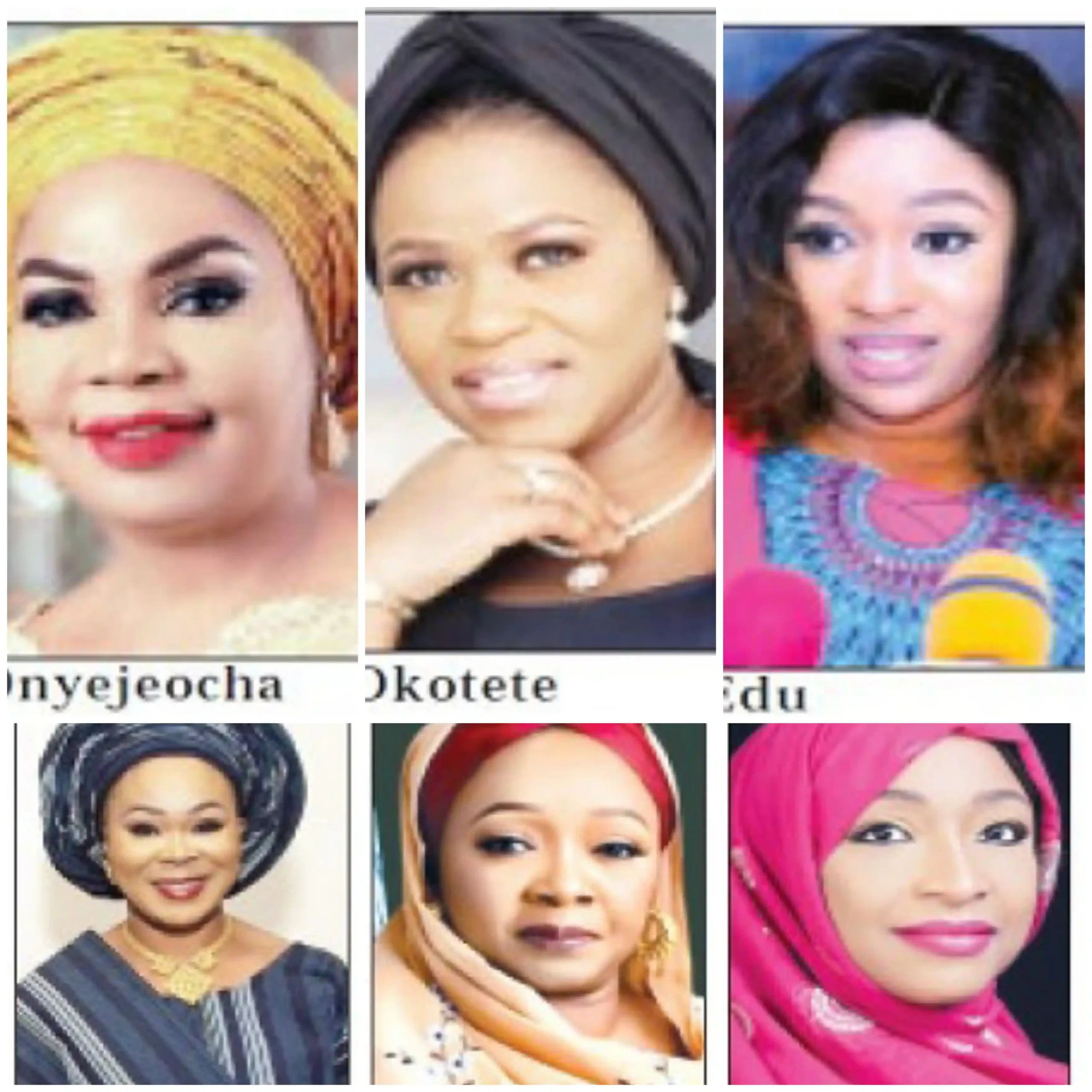Powerful Women in Tinubu’s Ministerial List.
In a historic move to promote gender equality and youth empowerment in Nigeria’s government, President Bola Tinubu fulfilled his promise by submitting the highly anticipated ministerial nominees’ list to the National Assembly. The list, comprising 28 individuals vying for various ministerial positions, was unveiled to the nation on a Thursday morning.
What stands out significantly is the commendable representation of women in the nominees’ list, albeit falling short of the 35 per cent threshold recommended for Affirmative Action. Among the 28 nominees, seven remarkable women have been selected to play significant roles in shaping the nation’s future. President Tinubu’s commitment to featuring women and youth “prominently” in his administration has become a beacon of hope for those advocating for gender parity in Nigerian politics.
In his inaugural speech following his swearing-in, President Tinubu emphasized his dedication to inclusive governance. This commitment was also detailed in his party’s manifesto, “Renewed Hope 2023: Action Plan for a Better Nigeria,” where members of the Federal Executive Council were encouraged to reserve certain senior positions for women. Additionally, the private sector was urged to mirror this progressive approach in their organizational structures.
“We will aim to pass legislation promoting female employment in all government offices, ministries, and agencies. The goal will be to increase women’s participation in government to at least 35 per cent of all governmental positions,” President Tinubu stated, underscoring his determination to drive tangible change.
Now, let’s take a closer look at the seven women who made the ministerial nominees’ list and their notable achievements:
The 7 Powerful Women in Tinubu’s Ministerial List
1. Hanatu Musawa:
A distinguished lawyer with qualifications from prestigious institutions in the United Kingdom, Hanatu Musawa holds a bachelor’s degree in law from the University of Buckingham and master’s degrees in both Legal Aspects of Marine Affairs from the University of Cardiff, Wales, and Oil and Gas Law from the University of Aberdeen. Her experience spans both Nigerian and UK jurisdictions. Musawa’s involvement in politics and her significant contributions as a lawyer on the prosecution team in the 2003 Presidential Election Petition between Muhammadu Buhari and President Olusegun Obasanjo exemplify her dedication to public service.
2. Betta Edu:
An accomplished medical doctor, Beta Edu’s credentials include a degree in medicine and surgery from the University of Calabar, Cross River State. She served as the Commissioner for Health in Cross River State and, notably, was elected as the National Women Leader of the All Progressives Congress (APC) at the APC National Convention, winning by a landslide. Edu’s experience as the Special Adviser on Women’s Affairs for the defunct Tinubu/Shettima Presidential Campaign Committee adds to her expertise in promoting women’s rights and welfare.
3. Hon Nkiru Onyejeocha:
With an academic background in Economics from the University of Nigeria, Nsukka, Nkiru Onyejeocha is a seasoned politician and a prominent figure in the House of Representatives. She began her political journey in 2007 as a member of the Peoples Democratic Party (PDP) and later defected to the All Progressives Congress (APC). Onyejeocha’s reelection for a fourth term in Nigeria’s Green Chamber in 2019 further solidified her position as a competent and respected legislator.
4. Stella Okotete:
Stella Okotete’s dedication to public service is evident in her educational background and career trajectory. She holds a degree in International Studies and Diplomacy from Benson Idahosa University, Benin City. Okotete’s appointment as the Executive Director (Business Development) at the Nigeria Export and Import Bank (NEXIM) by former President Muhammadu Buhari in 2022 showcases her expertise in economic development and financial affairs. Additionally, her service as a Special Assistant and Adviser to the Executive Governor of Delta State on the Millennium Development Goals (MDGs) underscores her commitment to national development.
5. Uju Kennedy-Ohanenye:
A legal practitioner and astute businesswoman based in Abuja, Uju Kennedy-Ohanenye initially declared her candidacy for the presidential position but later withdrew to support President Tinubu’s bid. Her decision to step aside demonstrated her loyalty and dedication to the party’s vision. As a woman in business, Kennedy-Ohanenye brings valuable perspectives and experiences to the political landscape.
6. Iman Suleiman Ibrahim:
Iman Suleiman Ibrahim holds a degree in sociology from the University of Abuja, which serves as the foundation for her impressive career in public service. As the former director-general of the National Agency for the Prohibition of Trafficking in Persons (NAPTIP) and the current Honourable Federal Commissioner of the National Commission for Refugees, Migrants, and Internally Displaced Persons, Ibrahim has been actively involved in championing the rights and welfare of vulnerable populations.
7. Doris Aniche Uzoka:
As the current Imo State Commissioner for Finance, Doris Aniche Uzoka has been instrumental in the state’s fiscal management. Her background in the finance sector, coupled with her longstanding political and professional affiliation with Lagos, makes her an ideal candidate for President Tinubu’s administration. Uzoka’s impeccable track record and the absence of any associated scandals further solidify her suitability for public office.
The inclusion of these accomplished women on the ministerial nominees’ list demonstrates President Tinubu’s commitment to bridging the gender gap in governance. By choosing qualified and capable female candidates, he sends a powerful message about the value of women’s leadership in nation-building.
However, it is essential to acknowledge that the representation of women in the nominees’ list did not meet the 35 per cent threshold recommended for Affirmative Action. While progress has been made, there is still work to be done to achieve true gender equality in Nigerian politics and governance.
Nonetheless, President Tinubu’s efforts are commendable, and his dedication to empowering women and youth in government bodes well for the future of Nigeria. By prioritizing inclusivity and diverse perspectives, his administration has the potential to drive positive change and foster a more equitable society.









